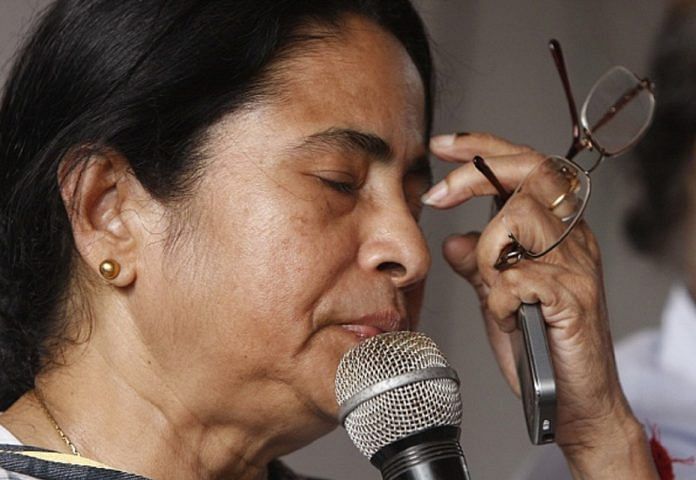To protect herself, Mamata Banerjee is forcing her administration to turn a blind eye to full-blown public health crisis.
News of dengue deaths is now a regular feature in Kolkata and some adjoining districts of south Bengal. In North 24 Parganas alone, there were 7,939 cases of dengue patients till 23 October, 2017.
Hospitals and public health centres are teeming with panic-stricken patients. There are public interest litigations in the court against the government and demonstrations on the street.
But Mamata Banerjee’s government is in denial mode. Not only that, officials are not allowed to speak about it either.
One doctor was suspended for revealing the truth about government’s unofficial gag on the dengue related deaths and inadequate infrastructure in the state hospitals for combating the near epidemic situation. The doctor had written a social media post about the pathetic situation—of being faced with hundreds of dengue patients and yet not being able to even mention ‘dengue’ as the cause of illness. Instead, the doctors were urged to write ”high fever” in their admission tickets.
In many hospitals the death certificates issued to the relatives of deceased persons mention their blood was NS1 positive, but the cause of death has been shown as high fever or related symptoms.
It is not just the poor, dengue is not sparing the middle class and the rich. Several deaths have been reported from Salt Lake, a predominantly middle and upper class area adjacent to Kolkata.
Sourav Ganguly’s brother, a reputed cricketer and a former member of Bengal’s Ranji side, is battling for life in a private nursing home. CPI-M leader Sujan Chakraborty is also suffering from dengue.
Yet, the state government is trying desperately to hide the situation from the public by fudging dengue-related facts and figures.
There have been around 10 PILs against the government over this and the Calcutta High Court had demanded a detailed report from the government on the extent of the spread of dengue and the number of deaths. The government submitted false data.
In its mid-October report, the government said that “some doctors made unsubstantiated claims which at times causes fear and panic in the public”. It maintained that till that time only 19 people died of dengue in the government hospitals in the state.
The court was not satisfied with that and asked the government to submit a report on deaths in private hospitals and nursing homes as well. In its second report, the government included deaths in private hospitals. But the petitioners exposed the government’s claim by producing three more dengue-related death certificates issued by state-run hospitals, that were not included in the submission. The court even said it had become difficult to believe government’s claims.
Chief minister Mamata Banerjee is holding the health department portfolio, and has alleged that private hospitals were acting irresponsibly by mentioning dengue as the cause of death in many cases that were doubtful.
Angry demonstrations against the health department and municipalities were staged in areas severely affected by the disease. Banerjee claims that her government and the municipal bodies are doing everything to combat dengue. She also warned municipalities which failed to perform that their boards would be dissolved.
Privately, many of her colleagues in the party and the government admit that her position is indefensible. They also add that in a party, that is ruled by a single person, nobody can question her wisdom.
Acutely conscious of her public image, Banerjee does not want to admit that the state has failed. As health minister, she knows that the buck stops at her door. Any admission of shortcoming in the health sector is also an admission of her own failure. To protect herself, she is forcing her administration to turn a blind eye to full-blown public health crisis.
The author is associated with the Mahanirban Calcutta Research Group



